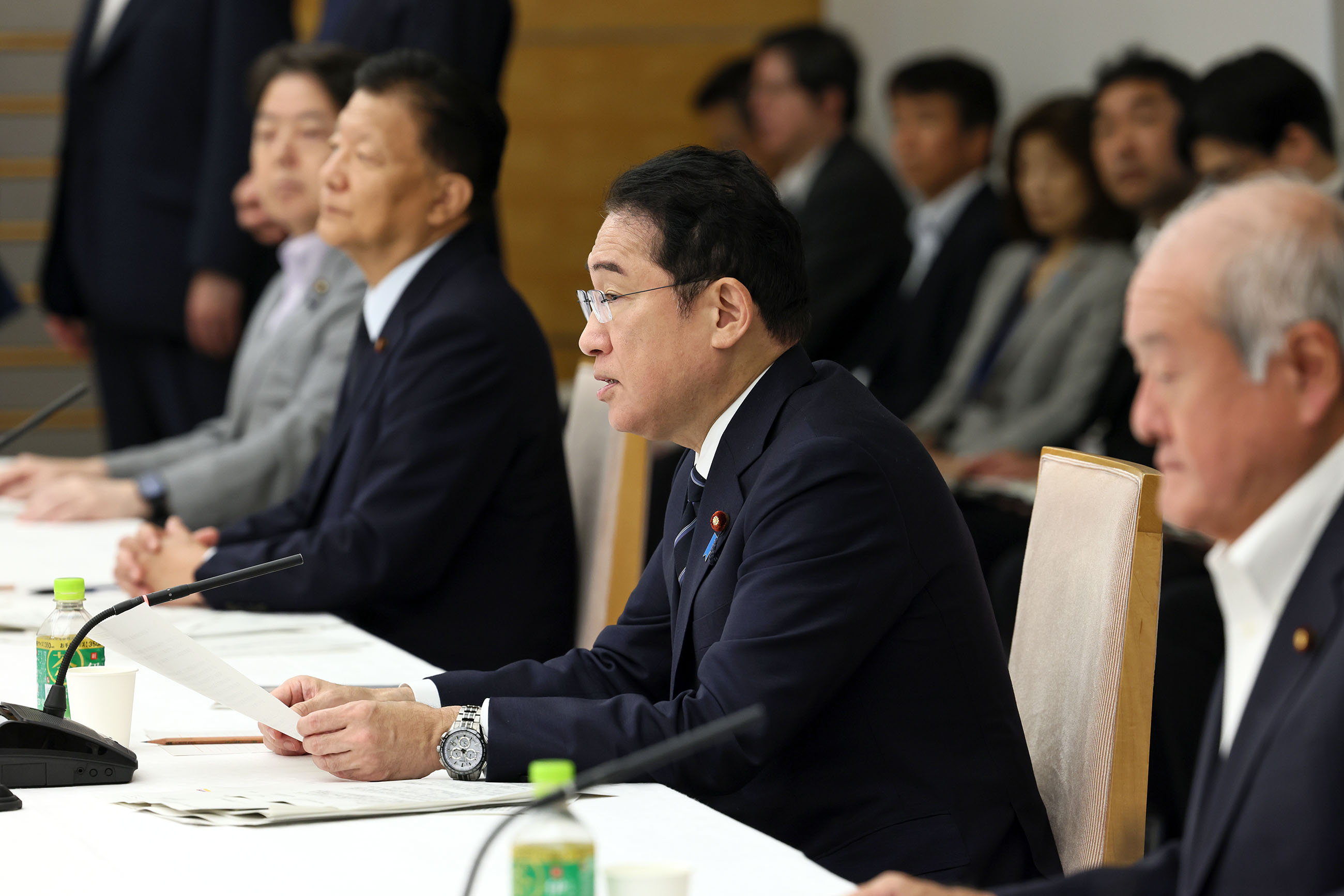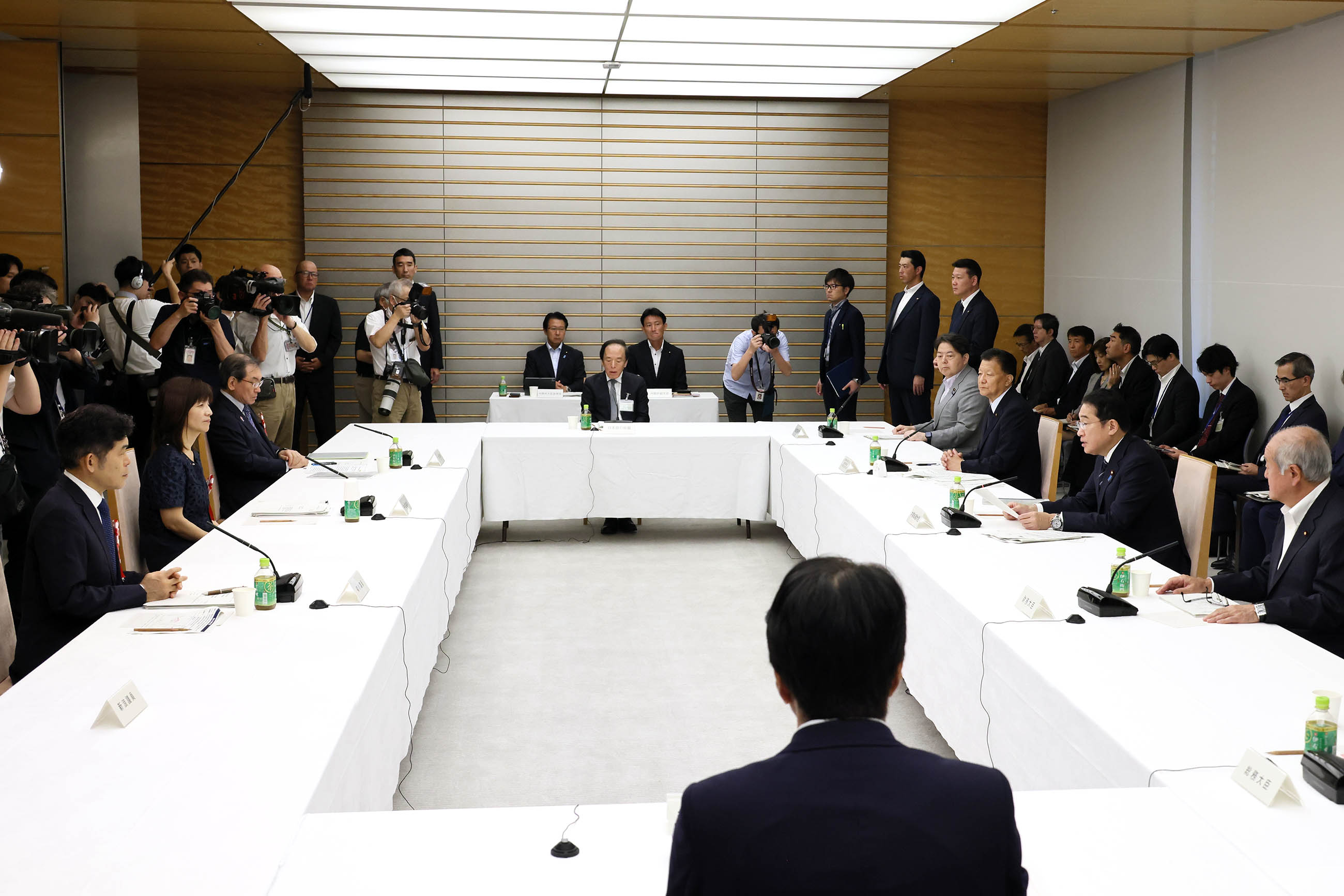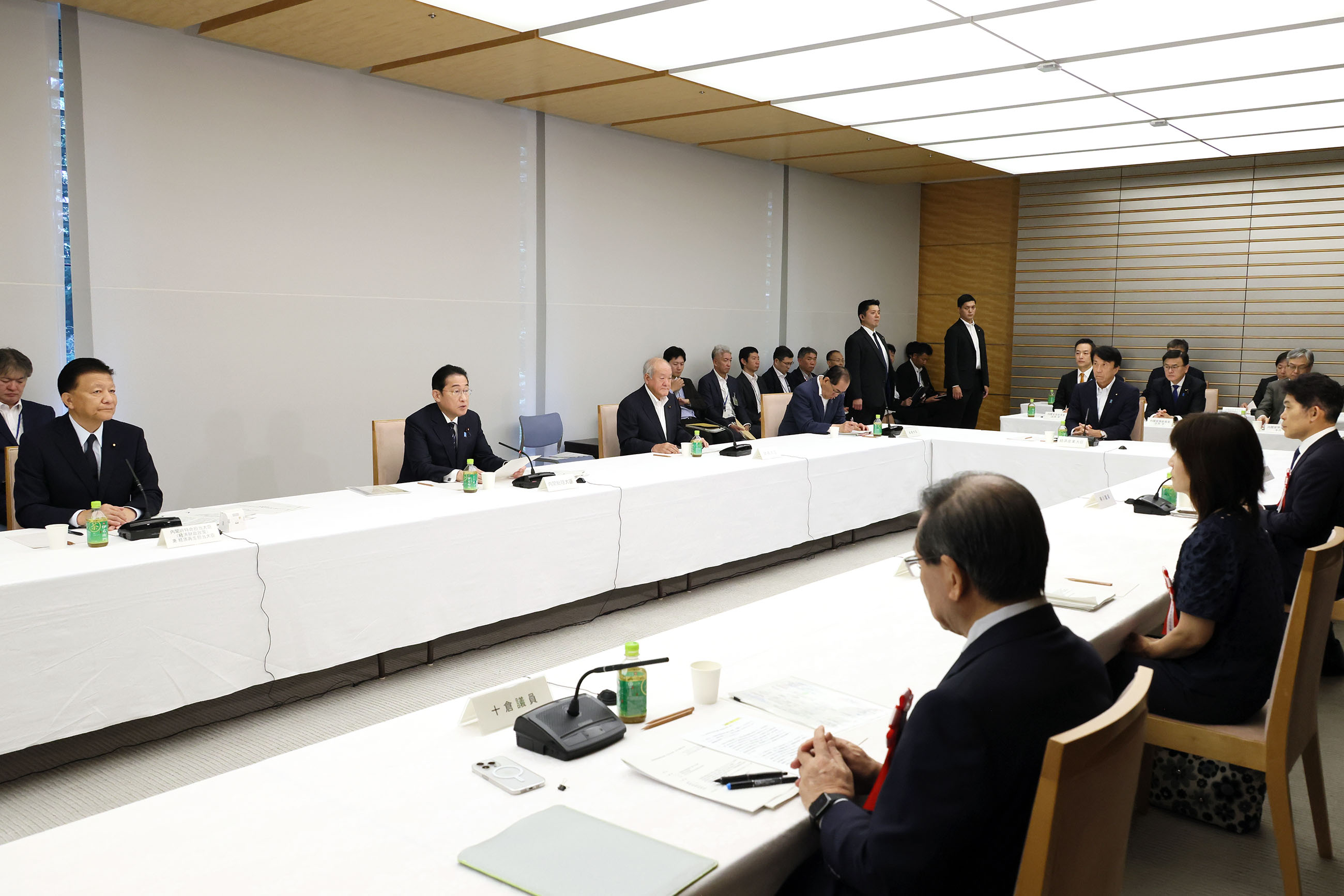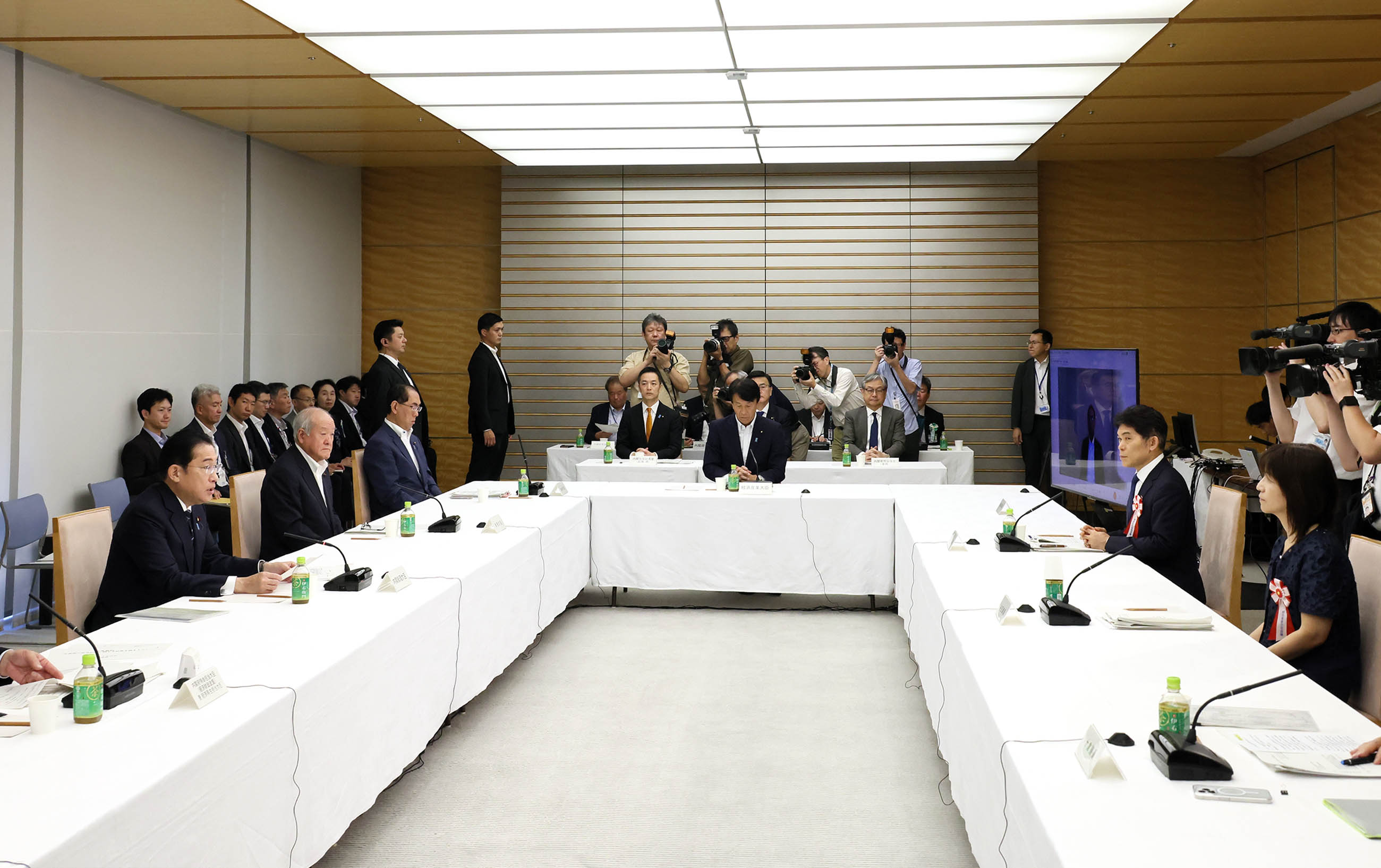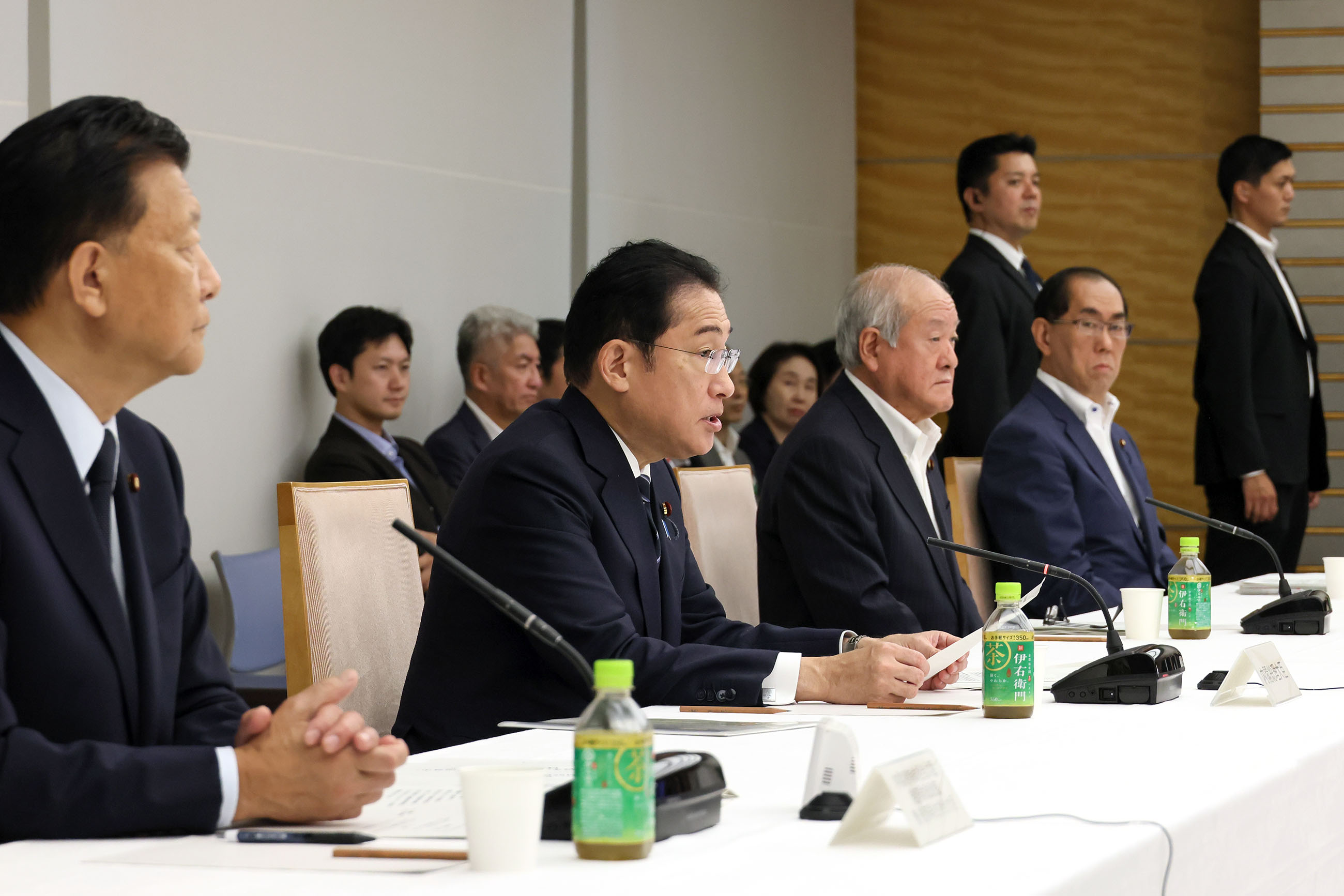Meeting of the Council on Economic and Fiscal Policy
July 29, 2024
[Provisional translation]
On July 29, 2024, Prime Minister Kishida held the 11th meeting of the Council on Economic and Fiscal Policy in FY2024 at the Prime Minister’s Office.
At the meeting, the participants engaged in discussions on the economic and fiscal projections for medium- to long-term analysis, the budget overview, and the guidelines for FY2025 budget requests.
Following the discussions, Prime Minister Kishida said:
“Today we received a report on the economic and fiscal projections for medium- to long-term analysis, and the Council decided the budget overview and approved the guidelines for budgets requests.
The latest economic and fiscal projects for medium- to long-term analysis show that the primary balance of the national and local governments will go into the black in FY2025 amid a robust growth driven by private-sector demand.
Based on the idea that the economy is the foundation of public finance, and in order to first realize a private-demand-led growth serving as the assumption of the idea, we will first steadily implement measures to realize income and wage increases that exceed price rises, which are necessary for a recovery in consumption. We will also ensure economic growth by improving productivity with digital technologies and artificial intelligence (AI) and making strategic investments under the public-private collaboration, while continuing to make efforts to achieve fiscal soundness.
From these perspectives, we will formulate a well-focused budget for FY2025, in line with the budget overview decided today and the guidelines for budgets requests to be approved by the Cabinet.
With a view to establishing wage hikes that outpace the increase in prices, we will steadily put into action initiatives included in the Big-Boned Policy (Basic Policy on Economic and Fiscal Management and Reform) 2024, including raising wages and improving treatment. In addition, we intend to promote well-planned medium- to long-term investments to enhance the predictability for the private sector, under the public and private collaboration. We will also change the allocation of resources and the quality of public finance so that such investments would lead to social reforms, such as the expansion of employment and work style reforms.
At the same time, we will continue our existing spending reform efforts and steadily implement institutional reform measures in main areas based on the Economic and Fiscal Revitalization Plan, while strengthening evidence-based policymaking (EBPM) and thoroughly conducting wise spending, thereby enhancing the effectiveness of policies.”
